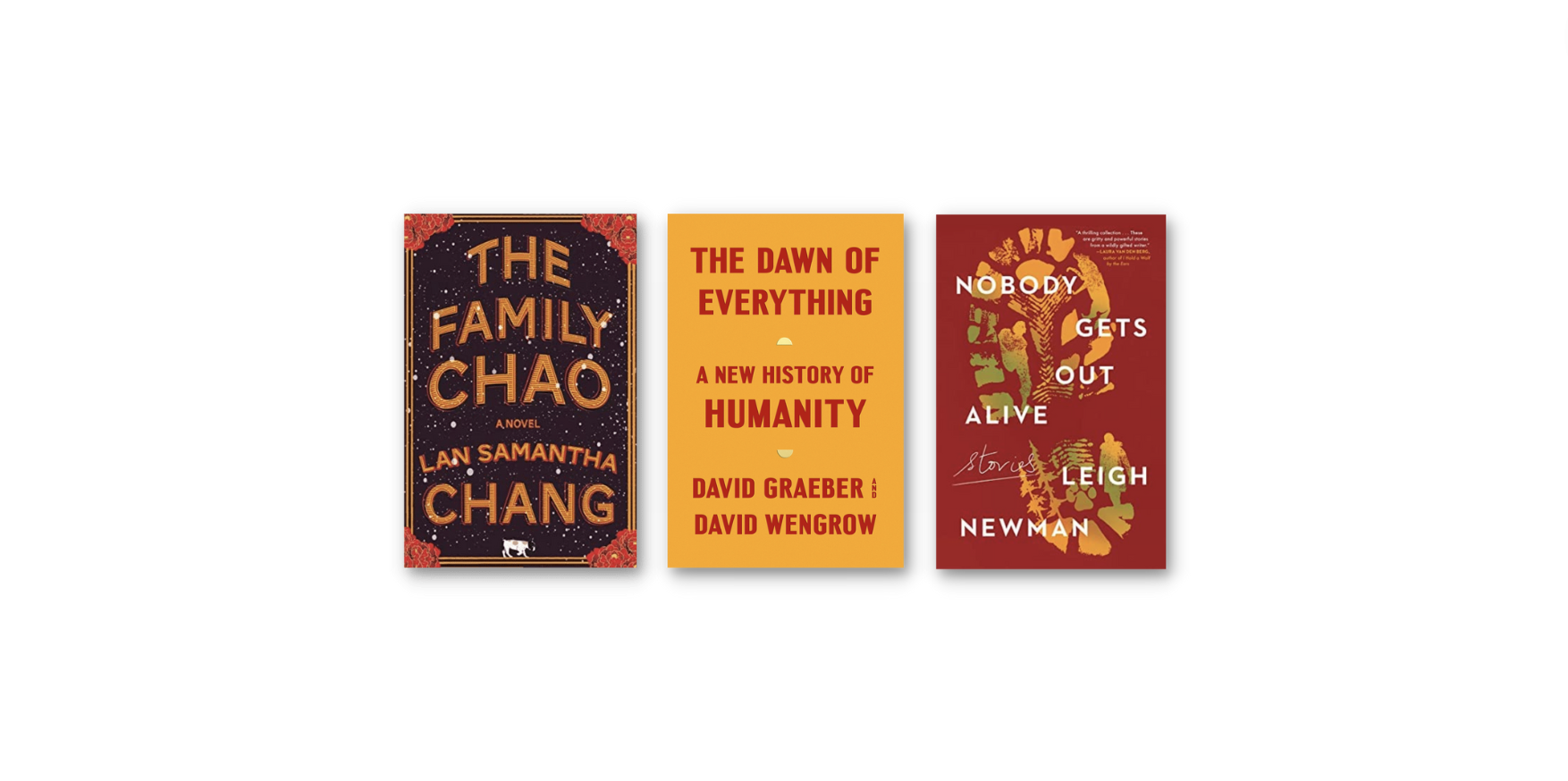 You know how sometimes you meet a person, they tell you about their job, you don’t exactly understand it, and by the time you’re true friends, it feels like it’s been much too late for quite a while to ask them to clarify what they do? I thought of this phenomenon after not reading my friend Erin O. White’s 2018 book Given Up for You: A Memoir of Love, Belonging and Belief until 2022.
You know how sometimes you meet a person, they tell you about their job, you don’t exactly understand it, and by the time you’re true friends, it feels like it’s been much too late for quite a while to ask them to clarify what they do? I thought of this phenomenon after not reading my friend Erin O. White’s 2018 book Given Up for You: A Memoir of Love, Belonging and Belief until 2022.
I’d actually met Erin back in 2004 through a mutual friend; we had lunch at a restaurant in Washington, D.C., and Erin was radiantly pregnant. Then we didn’t see each other again until 2019, after we’d both moved to Minneapolis for our spouses’ jobs, and the baby Erin had been pregnant with was in high school. I bought Given Up for You, a chronicle of when, in her early twenties, Erin simultaneously found Catholicism and fell in love with a woman for the first time. I proceeded to lose the book inside my house for two-plus years (a fact that’s unsurprising if you’ve ever visited me), then I found it again in January 2022, read it, and loved its warmth, intelligence, and honesty. But I still faced the dilemma of whether to newly compliment Erin or just keep quiet and pretend I’d read it a few years before. I went with confessing, and I’m doubling down here: Erin, I loved your book!

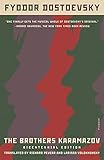 Another book I read early in 2022 was the novel The Family Chao by Lan Samantha Chang. I was preparing to ask Sam questions at an online bookstore event, but in the chicken-and-egg way of such things, I’d agreed to do the event because I wanted to read her book. A modern reimagining of The Brothers Karamazov, The Family Chao concerns the emotional, spiritual, and legal troubles of Winnie and Leo Chao, immigrants who run a Chinese restaurant in small-town Wisconsin, and their three sons. It’s atmospheric and thought-provoking, and vividly depicts painfully cold Midwestern winters and really, really delicious food.
Another book I read early in 2022 was the novel The Family Chao by Lan Samantha Chang. I was preparing to ask Sam questions at an online bookstore event, but in the chicken-and-egg way of such things, I’d agreed to do the event because I wanted to read her book. A modern reimagining of The Brothers Karamazov, The Family Chao concerns the emotional, spiritual, and legal troubles of Winnie and Leo Chao, immigrants who run a Chinese restaurant in small-town Wisconsin, and their three sons. It’s atmospheric and thought-provoking, and vividly depicts painfully cold Midwestern winters and really, really delicious food.
 In April, I did another online event, this one with the futurist and writer Jane McGonigal for her book Imaginable: How to See the Future Coming and Feel Ready for Anything—Even Things That Seem Impossible Today. It’s non-fiction that walks the reader through many ostensibly outlandish scenarios that Jane persuasively shows already exist to varying degrees—an international sperm-freezing initiative to counteract declining fertility rates, the outlawing of garbage—then asks the reader to ponder how prepared she is or could be. I found Imaginable completely fascinating in a few different ways. Most of the scenarios are unsettling, but Jane is convincing about the value of logistical and mental preparation. I also was intrigued by how much overlap there is between imagining the future, both globally and personally, and writing fiction, especially in terms of blending attention and imagination.
In April, I did another online event, this one with the futurist and writer Jane McGonigal for her book Imaginable: How to See the Future Coming and Feel Ready for Anything—Even Things That Seem Impossible Today. It’s non-fiction that walks the reader through many ostensibly outlandish scenarios that Jane persuasively shows already exist to varying degrees—an international sperm-freezing initiative to counteract declining fertility rates, the outlawing of garbage—then asks the reader to ponder how prepared she is or could be. I found Imaginable completely fascinating in a few different ways. Most of the scenarios are unsettling, but Jane is convincing about the value of logistical and mental preparation. I also was intrigued by how much overlap there is between imagining the future, both globally and personally, and writing fiction, especially in terms of blending attention and imagination.
 It wasn’t until September that I got to do my first in-person book event since February 2020 (!), when I joined my fellow Minneapolitan (isn’t that a fun word?) Will McGrath on the small stage at a brewery to ask him about his essay collection, Farewell Transmission: Notes from Hidden Spaces. Will’s essays are often reported, written in the first person, and set in wacky subcultures (an Elvis Presley impersonator festival, the indie wrestling circuit) or other countries (Yemen, Lesotho). Tonally, they’re warm and game without shying from how devastatingly sad and unjust life can be.
It wasn’t until September that I got to do my first in-person book event since February 2020 (!), when I joined my fellow Minneapolitan (isn’t that a fun word?) Will McGrath on the small stage at a brewery to ask him about his essay collection, Farewell Transmission: Notes from Hidden Spaces. Will’s essays are often reported, written in the first person, and set in wacky subcultures (an Elvis Presley impersonator festival, the indie wrestling circuit) or other countries (Yemen, Lesotho). Tonally, they’re warm and game without shying from how devastatingly sad and unjust life can be.
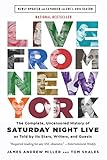




 On a much lighter note, over the last few years, I’ve immersed myself in Saturday Night Live memoirs and also that mammoth, magnificent oral history, Live From New York, edited by James Andrew Miller and Tom Shales, because I wrote an SNL-inspired novel called Romantic Comedy that will be published in April. I’d already done the bulk of my “research,” but in 2022 I read three last SNL-adjacent memoirs: Steve Martin’s Born Standing Up: A Comic’s Life (I listened to the audio, so I guess you could say Steve Martin read it to me?); Hello, Molly! by Molly Shannon; and I Might Regret This: Essays, Drawings, Vulnerabilities and Other Stuff by Abbi Jacobson. Though Jacobson, of Broad City and A League of Their Own, was never on SNL, she herself is a big fan of the show and she’s very funny. Her essays are about the solo cross country-road trip she took after a devastating breakup, and they’re conversational, which is a word I’d also use to describe Hello, Molly! I hadn’t previously known about Shannon’s tragic family history: When she was four, she was in a car accident that killed her mother, one of her two sisters, and a 25-year-old cousin. I found Hello, Molly! to be riveting in its candor, colorful anecdotes, and casual dispensing of wisdom. Bonus: Her co-writer was the acclaimed Sean Wilsey, whose 2005 book Oh the Glory of It All (about family and money and being kicked out of many boarding schools) is one of my all-time favorite memoirs.
On a much lighter note, over the last few years, I’ve immersed myself in Saturday Night Live memoirs and also that mammoth, magnificent oral history, Live From New York, edited by James Andrew Miller and Tom Shales, because I wrote an SNL-inspired novel called Romantic Comedy that will be published in April. I’d already done the bulk of my “research,” but in 2022 I read three last SNL-adjacent memoirs: Steve Martin’s Born Standing Up: A Comic’s Life (I listened to the audio, so I guess you could say Steve Martin read it to me?); Hello, Molly! by Molly Shannon; and I Might Regret This: Essays, Drawings, Vulnerabilities and Other Stuff by Abbi Jacobson. Though Jacobson, of Broad City and A League of Their Own, was never on SNL, she herself is a big fan of the show and she’s very funny. Her essays are about the solo cross country-road trip she took after a devastating breakup, and they’re conversational, which is a word I’d also use to describe Hello, Molly! I hadn’t previously known about Shannon’s tragic family history: When she was four, she was in a car accident that killed her mother, one of her two sisters, and a 25-year-old cousin. I found Hello, Molly! to be riveting in its candor, colorful anecdotes, and casual dispensing of wisdom. Bonus: Her co-writer was the acclaimed Sean Wilsey, whose 2005 book Oh the Glory of It All (about family and money and being kicked out of many boarding schools) is one of my all-time favorite memoirs.




 Another category of book that I embraced this year, though I’m not sure I realized except in retrospect that I was doing so, was what could be called The Middle-Aged Memoir of Loss. (My father died in 2021, so it’s probably not a coincidence that I was drawn to these books.) I read Lost & Found by the New Yorker staff writer Kathryn Schulz, about losing her father and, around the same time, meeting her now-wife. Schulz is a bracingly smart writer, and it’s enthralling to see her particular kind of scrupulous intelligence trained on the topic of romantic love. I read (the somewhat similarly titled) The Beauty of Dusk: On Vision Lost and Found by the New York Times columnist Frank Bruni, about partially losing his vision after a stroke, and in the process, being reminded of the challenges many people are experiencing all the time, sometimes invisibly, and becoming more rather than less grateful. I read the memoir Stepping Back from the Ledge: A Daughter’s Search for Truth and Renewal by Laura Trujillo, about losing her mother to suicide and facing her own deep struggles afterward. I read All of This: A Memoir of Death and Desire by Rebecca Woolf, about Woolf deciding she wanted a divorce from her husband and the father of her four kids, then unexpectedly losing him to cancer just four months later. Some memoirs are discreet-ish and some go for it with the unvarnished details, and All of This fully goes for it in a way I respected as a writer and appreciated as a reader. Finally, I read (or again, listened to) the memoir The Fixed Stars by Molly Wizenberg, which is about how, while on jury duty, Wizenberg became romantically fixated on the female lawyer of the defendant, though Wizenberg was then married to a man with whom she was running two restaurants and raising one toddler. I found The Fixed Stars to be beautifully written and unusually thoughtful.
Another category of book that I embraced this year, though I’m not sure I realized except in retrospect that I was doing so, was what could be called The Middle-Aged Memoir of Loss. (My father died in 2021, so it’s probably not a coincidence that I was drawn to these books.) I read Lost & Found by the New Yorker staff writer Kathryn Schulz, about losing her father and, around the same time, meeting her now-wife. Schulz is a bracingly smart writer, and it’s enthralling to see her particular kind of scrupulous intelligence trained on the topic of romantic love. I read (the somewhat similarly titled) The Beauty of Dusk: On Vision Lost and Found by the New York Times columnist Frank Bruni, about partially losing his vision after a stroke, and in the process, being reminded of the challenges many people are experiencing all the time, sometimes invisibly, and becoming more rather than less grateful. I read the memoir Stepping Back from the Ledge: A Daughter’s Search for Truth and Renewal by Laura Trujillo, about losing her mother to suicide and facing her own deep struggles afterward. I read All of This: A Memoir of Death and Desire by Rebecca Woolf, about Woolf deciding she wanted a divorce from her husband and the father of her four kids, then unexpectedly losing him to cancer just four months later. Some memoirs are discreet-ish and some go for it with the unvarnished details, and All of This fully goes for it in a way I respected as a writer and appreciated as a reader. Finally, I read (or again, listened to) the memoir The Fixed Stars by Molly Wizenberg, which is about how, while on jury duty, Wizenberg became romantically fixated on the female lawyer of the defendant, though Wizenberg was then married to a man with whom she was running two restaurants and raising one toddler. I found The Fixed Stars to be beautifully written and unusually thoughtful.
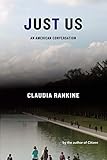
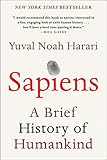

 Another category of book I’ve been drawn to in the last few years is the How Did We Get Here tome. I read Just Us: An American Conversation by Claudia Rankine, an essayistic examination of whiteness, white ignorance, and white complicity around racism that is also a kind of collage (featuring tweets, a child’s drawing, and the list of ingredients in hair dye). I thought it was excellent. I happened to read Sapiens: A Brief History of Humankind by the Israeli scholar Noah Yuval Harari in February 2020, just before things shut down in the U.S. At that point, 12 million copies had sold, so I sometimes think of myself as Sapiens’s twelve millionth and first reader. Over the summer, I read the follow-up, Homo Deus: A Brief History of Tomorrow, which recapitulates a fair amount of Sapiens—one of the main arguments is that it’s humans’ ability to collectively believe in fictions such as nation states, corporations, and religions that has let us cooperate with one another to become earth’s dominant species—as well as delving into how A.I. might affect the decades and centuries to come. Because I apparently still haven’t quite figured out How We Got Here, I recently started listening to the audio of The Dawn of Everything: A New History of Humanity by David Graeber and David Wengrow. My understanding is that in places it’s a direct rebuttal to Sapiens. Whatever it is, it’s profoundly interesting, focusing on how a lot of what many of us think of as European insights about culture, society, and humanity in fact come from seventeenth-century indigenous intellectuals of present-day North America. The audio book is 24 hours and two minutes, and as of this writing, I’m eight hours and 19 minutes in. I’m pretty sure I’ll still be listening when we ring in 2023.
Another category of book I’ve been drawn to in the last few years is the How Did We Get Here tome. I read Just Us: An American Conversation by Claudia Rankine, an essayistic examination of whiteness, white ignorance, and white complicity around racism that is also a kind of collage (featuring tweets, a child’s drawing, and the list of ingredients in hair dye). I thought it was excellent. I happened to read Sapiens: A Brief History of Humankind by the Israeli scholar Noah Yuval Harari in February 2020, just before things shut down in the U.S. At that point, 12 million copies had sold, so I sometimes think of myself as Sapiens’s twelve millionth and first reader. Over the summer, I read the follow-up, Homo Deus: A Brief History of Tomorrow, which recapitulates a fair amount of Sapiens—one of the main arguments is that it’s humans’ ability to collectively believe in fictions such as nation states, corporations, and religions that has let us cooperate with one another to become earth’s dominant species—as well as delving into how A.I. might affect the decades and centuries to come. Because I apparently still haven’t quite figured out How We Got Here, I recently started listening to the audio of The Dawn of Everything: A New History of Humanity by David Graeber and David Wengrow. My understanding is that in places it’s a direct rebuttal to Sapiens. Whatever it is, it’s profoundly interesting, focusing on how a lot of what many of us think of as European insights about culture, society, and humanity in fact come from seventeenth-century indigenous intellectuals of present-day North America. The audio book is 24 hours and two minutes, and as of this writing, I’m eight hours and 19 minutes in. I’m pretty sure I’ll still be listening when we ring in 2023.
On the opposite end of the length continuum, in one delightful sitting, I read the poetry chapbook Tits on the Moon by the musician and writer Dessa. Coming in at 22 pages, the book consists of 18 poems that, as she puts it in the introduction, “I’ve read from stage during a concert, often to obscure a petty emergency.” The poems are funny and existential and generally splendid.


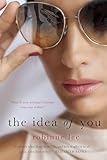
 As it happens, as both a reader and writer, I consider fiction to be closest to my heart. But I’m a regrettably harsh judge of fiction so I tend to either love novels and story collections or give up on them midway. (Though if you’re reading this and you’re a writer who had a book of fiction published in 2022, it’s far less likely that I gave up on it than that I haven’t started it yet. Maybe I’ll love yours in 2023!) The fiction I completed—which is to say, loved—in 2022 was The Evening Hero by Marie Myung-Ok Lee (a gripping epic about how an obstetrician in rural Minnesota began life as a scrappy, beloved boy in what became North Korea); Nobody Gets Out Alive by Leigh Newman (brilliantly multi-layered stories set mostly in an affluent, white, often reckless Alaska); The Idea of You by Robinne Lee (a completely delicious and emotionally nuanced tale of the romance between a glamorous 40-year-old divorced mother and a super-famous British boy bander—think Harry Styles in his One Direction days); and All This Could Be Different by Sarah Thankam Mathews (a juicy and astute portrayal of Sneha, a recent college graduate who aspires to be, in her word, a slut, while also seeking economic stability in the face of a recession specifically and capitalism generally).
As it happens, as both a reader and writer, I consider fiction to be closest to my heart. But I’m a regrettably harsh judge of fiction so I tend to either love novels and story collections or give up on them midway. (Though if you’re reading this and you’re a writer who had a book of fiction published in 2022, it’s far less likely that I gave up on it than that I haven’t started it yet. Maybe I’ll love yours in 2023!) The fiction I completed—which is to say, loved—in 2022 was The Evening Hero by Marie Myung-Ok Lee (a gripping epic about how an obstetrician in rural Minnesota began life as a scrappy, beloved boy in what became North Korea); Nobody Gets Out Alive by Leigh Newman (brilliantly multi-layered stories set mostly in an affluent, white, often reckless Alaska); The Idea of You by Robinne Lee (a completely delicious and emotionally nuanced tale of the romance between a glamorous 40-year-old divorced mother and a super-famous British boy bander—think Harry Styles in his One Direction days); and All This Could Be Different by Sarah Thankam Mathews (a juicy and astute portrayal of Sneha, a recent college graduate who aspires to be, in her word, a slut, while also seeking economic stability in the face of a recession specifically and capitalism generally).
 Right now I’m about halfway through the novel I Love You but I’ve Chosen Darkness by Claire Vaye Watkins, and it’s so great, so fearless, and so topically in my wheelhouse (love, class, the past, being a female writer) that I can’t believe no one pulled me aside the minute it came out in 2021 to tell me to read it. In other words, it’s the perfect reading experience to end a year on.
Right now I’m about halfway through the novel I Love You but I’ve Chosen Darkness by Claire Vaye Watkins, and it’s so great, so fearless, and so topically in my wheelhouse (love, class, the past, being a female writer) that I can’t believe no one pulled me aside the minute it came out in 2021 to tell me to read it. In other words, it’s the perfect reading experience to end a year on.
